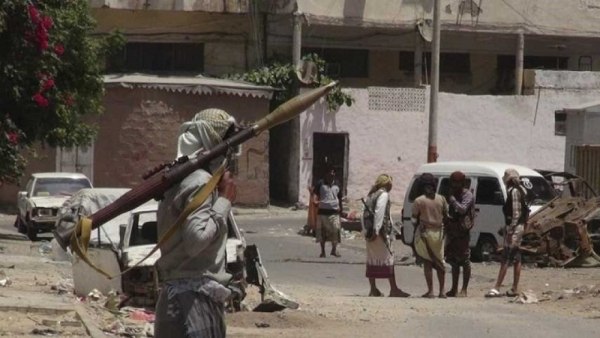SANAA, May 26 (YPA) – Supporters of the UAE-funded Southern Transitional Council (STC) have boasted about the humiliation and abuse that the Saudi-backed Islah Party was subjected to in Aden, warning supporters of later President Ali Saleh not to fall into the same fate.
According to an analysis issued by Yemen Press Agency, there is no place in Yemen where the rival forces of the coalition are mixed, as is happening in Aden today, where it is no longer easy to know who is against whom?
All the factors of hostility in Aden combined to create a great chaos, intertwined with conflicts, whose roots go back to the war of the summer of 1994.
At a time when indicators show that the Saudi-led coalition is no longer able to continue its military intervention in Yemen, the Emirates-backed forces are competing with each other to gain favor in Abu Dhabi, where Tariq Afash trying to impose himself as the influential force to receive the legacy of the coalition in Yemen, while the STC militias are considered itself the holder of the historical right to represent any tendencies that might go to separate southern Yemen from the north.
Instead of the conflict that was raging between the STC and the Islah party, new parties entered the map of confrontations in the occupied areas of Yemen, declaring a new phase of the fierce conflict, with the attendant repercussions on the deteriorating economic situation in the occupied territories in particular, and Yemen in general.
Perhaps the explosion that took place on Thursday, in a popular market crowded with citizens, in the center of the city of Aden, leaving 40 civilians dead and wounded, has revealed the growing level of conflicts, and what the situation could to in terms of killings and terrorism in Aden and the rest of the occupied areas.
Observers believed that the explosions, which have recorded a remarkable growth in the city of Aden, since the return of the Riyadh-formed Presidential Council, actually reflect the severity of the differences afflicting the forces loyal to the coalition.
While some believed that the coalition countries worked to form the Riyadh Council to make way for more conflicts and economic deterioration in the coalition-controlled areas in southern Yemen, in order to enhance the control of the Saudis and Emiratis in those areas.
A number of political analysts said that the tension in the situation in Aden would not take long before it erupted in the form of bloody battles between the rival forces in the occupied areas.
In the face of these accelerating farces, the citizen stands in a state of dizziness, and petty conflicts have become a permanent feature of life, and no one seems to want to stop them between factions that do not have the slightest degree of responsibility, but are committed to blindly subordination to the enemies of Yemen without shame.
AA


